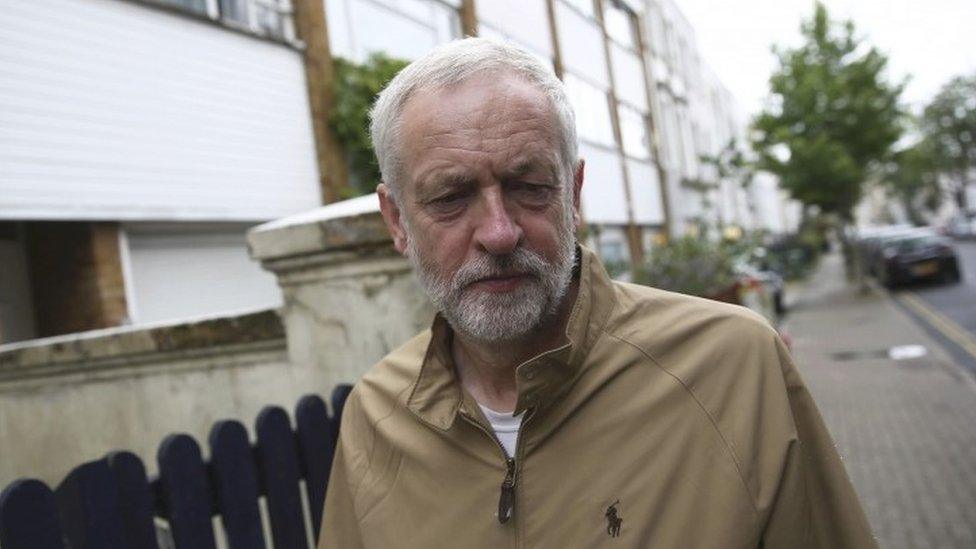Could Tony Blair face legal action over Iraq War?
- Published
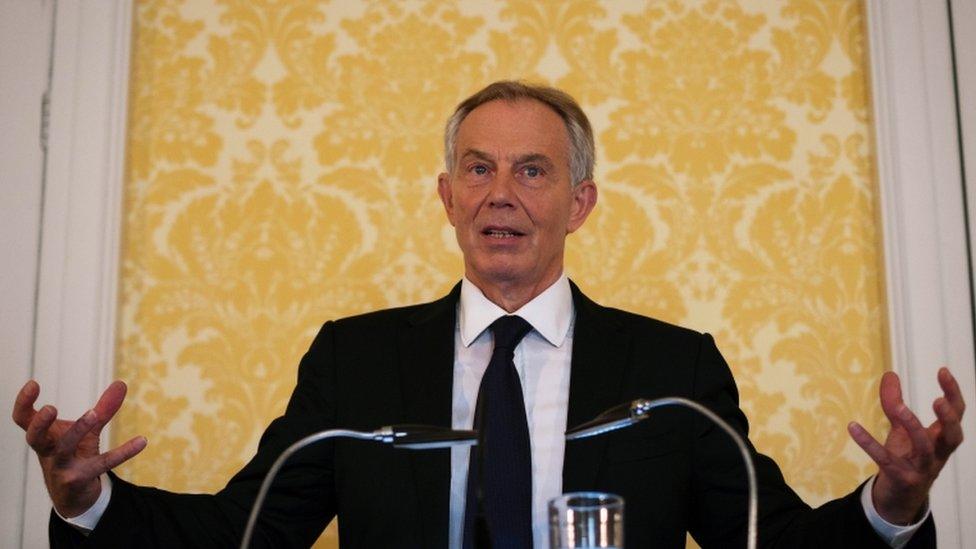
The legality of the war was not a question addressed in Sir John Chilcot's long-awaited report on the 2003 invasion of Iraq.
The inquiry chairman clearly felt that it was not within his terms of reference to do so. But what he did say about the process is highly revealing.
The report states that "the circumstances in which it was ultimately decided that there was a legal basis for UK participation were far from satisfactory". What were the reasons for this?
The war began on 20 March 2003. Sir John said "It was not until 13 March 2003 that [Attorney General] Lord Goldsmith advised that there was, on balance, a secure legal basis for military action."
So, just seven days before war commenced the government's chief legal officer changed his mind and came to the firm view that military action was legal.
Sir John catalogues a number of failures in the circumstances leading up to that advice, including keeping some key ministers in the dark about the attorney general's earlier legal advice, and a critical final judgment on whether Iraq was fundamentally in breach of UN resolution 1441 - seemingly taken by former Prime Minister Tony Blair alone.
Does any of this expose Mr Blair to criminal prosecution or other legal action? Some of the lawyers I have been speaking to believe there is little possibility of any legal action against him. Others think he is potentially vulnerable in some areas.

The crime of 'aggression'
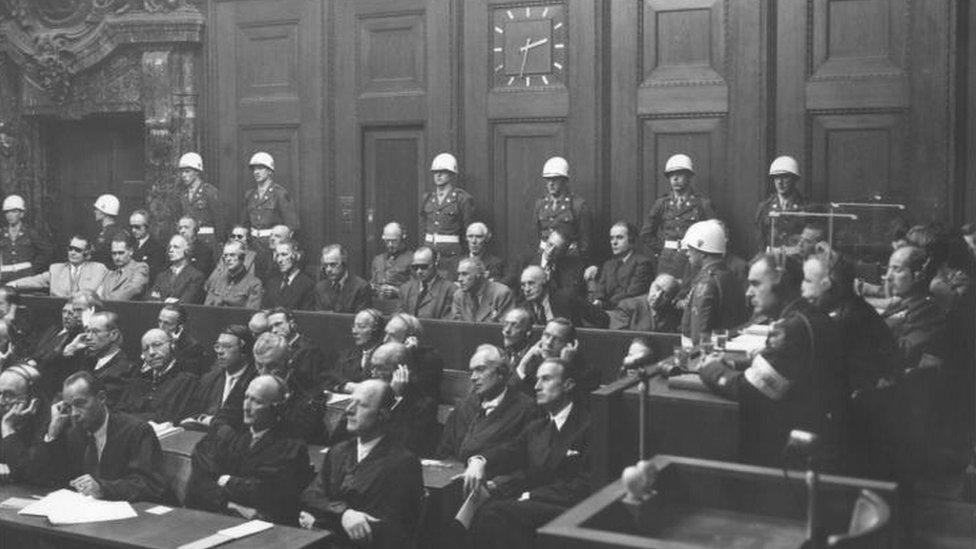
Germany's Nazi leaders went on trial in the German city of Nuremberg charged with war crimes in November 1945
Modern international criminal law was born in the aftermath of the Second World War.
Leading figures in the Nazi regime were tried at Nuremberg for waging an "aggressive" war.
It remained possible to prosecute individuals for the crime of aggression until the 1998 Rome Statute which created the International Criminal Court (ICC).
Although it provided for prosecuting the crime of aggression, it delayed bringing the offence into force until a modern definition was agreed by its member states.
This was done in 2010 when it was agreed the offence was one of planning or preparation "by a person in a position effectively to exercise control or to direct political or military action of a state" of an act of aggression, "which, by its character, gravity and scale, constitutes a manifest violation of the charter of the UN".
However, it was also agreed that there should be no prosecutions until further agreement in 2017. This means that it would not be possible to prosecute Tony Blair for aggression now or in the future, because even when the offence is in place and prosecutable, it will not be legally possible to apply it retrospectively.
"Aggression" is not a crime in our domestic law and so could not be prosecuted in our courts.

War crimes
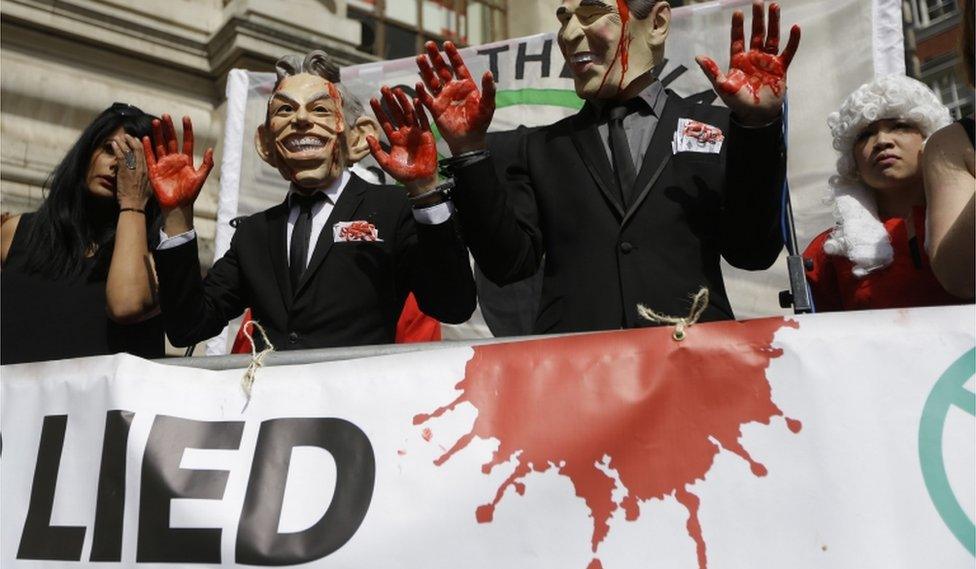
The decision to go to war and the consequences in Iraq provoked anger among large numbers of people in the UK, then and now
The International Criminal Court (ICC) can and does prosecute individuals for three distinct crimes - genocide, war crimes and crimes against humanity.
In order for a leader to be prosecuted for war crimes on the battlefield, it would be necessary to prove that they knew or should have known of the crimes and failed to take necessary and reasonable steps to prevent them.
It is possible to bring such a prosecution in our courts, and at the ICC if our domestic prosecuting authorities are unable or unwilling to bring them.
Nothing in the Chilcot report would suggest that there is any prospect of prosecuting Tony Blair for war crimes.

Misconduct in a public office

Then Attorney General Lord Goldsmith gave legal advice on military action
Of the possible criminal offences Mr Blair could face in this country, the most likely is misconduct in a public office.
It is committed when a public official acting in the course of their duties wilfully neglects to perform that duty, or wilfully misconducts themselves to such a degree that their behaviour amounts to an abuse of the public's trust in them.
The offence was used frequently in the phone-hacking scandal to prosecute police officers and other public officials who took money from journalists in return for providing stories.
The former Director of Public Prosecutions, Lord MacDonald QC, believes Tony Blair's conduct in the build-up to the Iraq war could amount to misconduct in public office.
Speaking to The Times, he highlighted an example of "particularly egregious misconduct" set out in the Chilcot report.
It occurred about a week before the war and days before the final legal advice of 17 March 2003 from the then Attorney General, Lord Goldsmith.
Through his official, David Brummell, the attorney general informed Mr Blair that it "was an essential part of the legal basis for military action without a further resolution of the Security Council that there is strong evidence that Iraq has failed to comply with and co-operate fully in the implementation of resolution 1441".
Lord Macdonald said: "Yet, without seeking any advice whatsoever, or calling for any evidence to determine whether this critical condition was met, Mr Blair simply expressed 'the unequivocal view' that such further breaches had indeed occurred."
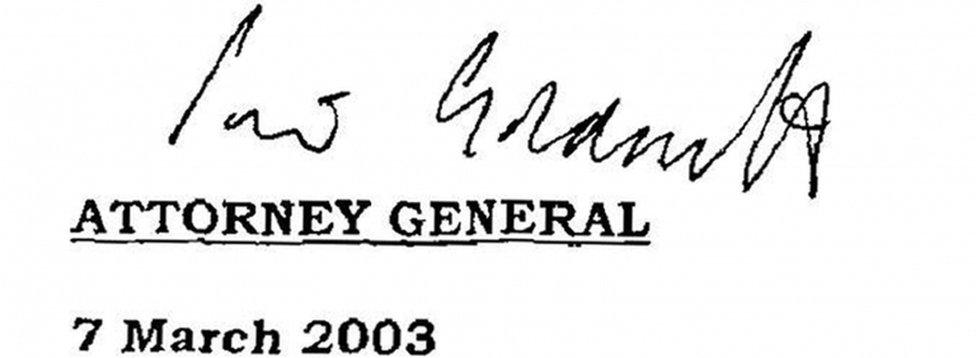
Sir John said: "It is unclear what specific grounds Mr Blair relied upon in reaching his view.
"In his advice of 7 March, Lord Goldsmith had said that the views of (weapons inspectors) UNMOVIC and the International Atomic Energy Agency (IAEA) would be highly significant in demonstrating hard evidence of non-compliance and non-cooperation. In the exchange of letters on 14 and 15 March between Mr Brummell and Number 10 [Downing Street], there is no reference to their views; the only view referred to was that of Mr Blair."
He concluded: "Senior ministers should have considered the question posed in Mr Brummell's letter of 14 March, either in the defence and overseas policy committee or a 'war cabinet', on the basis of formal advice. Such a committee should then have reported its conclusions to Cabinet before its members were asked to endorse the government's policy."
Based on that, Lord Macdonald said: "In behaving in this disreputable way to win tainted legal backing for massive armed conflict, it seems very likely that Mr Blair roundly abused the trust placed in him by the public."
It is a defence to misconduct in public office that the office holder had a reasonable excuse. Lord Macdonald concedes that Mr Blair would be able to argue that Saddam's continued rule in Iraq would have created security Armageddon, but believes that "Chilcot and history have combined to expose his defence as a busted flush".
There are other aspects of the Chilcot report which might also provide grounds for a prosecution for misconduct in a public office, for example the failure to provide ministers "whose responsibilities were directly engaged", with the attorney general's earlier legal advice of 7 March 2003 on the legality of the war, which concluded that the safer route would be to seek a second UN resolution.
However, it should be recognised that the offence is not meant to criminalise what amounts to poor political judgment or decision making. The behaviour concerned must amount to an abuse of the public's trust.

Civil claims
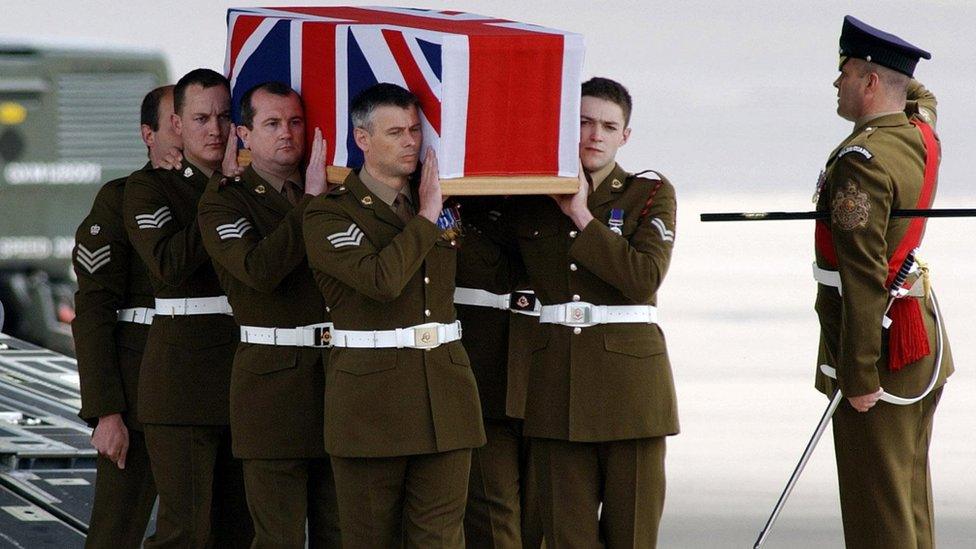
Corporal Simon Miller, a British military policeman, was among the 179 British service personnel and civilians killed in Iraq between 2003 and 2009
There is a potential civil claim for "misfeasance in public office". This is almost the civil equivalent to the crime of misconduct in public office.
It is based on proving that the office holder abused their power in a way that injured the claimant. Judged on the lower civil standard of proof, the balance of probabilities, it requires that the office holder owed the claimant a duty of care, breached it and that resulted in harm to the claimant.
Often the claim will involve the office holder having acted unlawfully while knowing that what they were doing was unlawful. Mr Blair has always maintained that he acted in good faith. That would be a successful defence to a civil claim for misfeasance.
Lawyers for the families of those who lost loved ones in the war and its aftermath are studying the 2.6 million word report to see whether it provides the basis for civil claims against the former prime minister. It will be a long and challenging task.
A statement from Matthew Jury, managing partner at McCue and Partners, which represents some of the families who lost loved ones, said: "In the coming days and weeks, the families will undertake a full and forensic review of the report's content and conclusions. If state officials are determined to have acted unlawfully or in excess of their powers, then the families will then decide on whether to take any necessary and appropriate action at the proper time. All options will be considered.
"Just as importantly, as well as examining the culpability of individual state officials, we must also look at the process that led to the Iraq War so that we never make such grave mistakes with such tragic long-term and far-reaching consequences again."

- Published7 July 2016
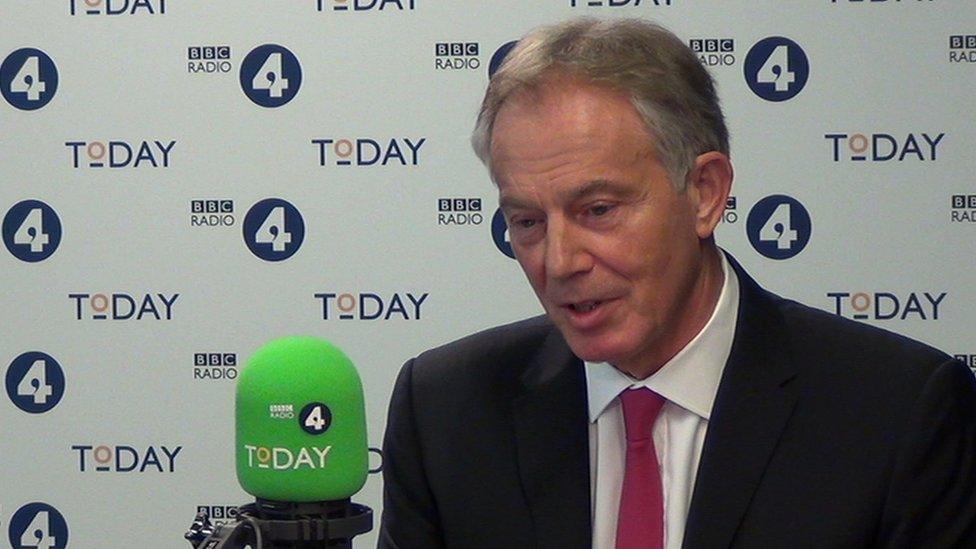
- Published19 June 2016
